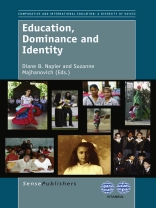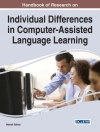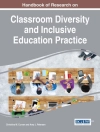This volume is a collection of research cases illustrating the interrelationships among education, dominance and identity in historical- and contemporary contexts. The cases reflect particular ways in which local-, group, and indigenous identities have been affected by a dominant discourse, how education can support or undermine identity, and how languages (including dominant and sub-dominant languages) and the language of instruction in schools are at the centre of challenges to hegemony and domination in many situations. Examining the issues in their research, the contributors reveal how members of minority-, disadvantaged-, or dominated groups (and the teachers and parents of children in their schools) struggle for recognition, for education in their own language, for acceptance within larger society, or for recognition of the validity of their responses to reform initiatives and policies that address a wider agenda but that fail to take into account key factors such as perceptions and subaltern status. Collectively, the chapters document research employing a variety of methodological approaches and theoretical perspectives, illustrating an array of universal and global issues in the field of comparative and international education. However, each of the cases its own unique character, as research findings and as personal reflections based on the authors’ experiential knowledge in particular social, cultural and political contexts. The contexts and regional settings include Chile, Canada, the United States, Hungary and elsewhere in East-Central Europe, France, Germany, Spain, Malaysia, Tanzania, South Africa, Cyprus, Tunisia, Egypt, Iran and elsewhere in the Middle East.
Содержание
Acknowledgments; 1. Introduction: Global Issues: Regional, National and Local Culture Case Studies; Part I: Indigenous Identity and Development; 2. Decolonizing Indigenous Education in Canada; 3. Discovering the Past, Uncovering Diversity: The Reclamation of Indigenous Identity through a Community Education Project; Part II: Integration and Domination of Ethnic Minority Groups; 4. Critical Analysis of School Integration of Roma Children in Nyíregyháza, Hungary; 5. Social Equality versus Cultural Identity: Government Policies and Roma Education in East-Central Europe; 6. Children’s Home Languages in Early Childhood Education Systems: Handicap or Asset? A Comparative Study of Parents’ and Teachers’ Attitudes; 7. Constructing Spanish: Discourses of Language Hegemony in Spain; Part III: Language, Education, Language of Instruction and Identity; 8. A Study of Escalating Debates on the Use of a Global or Local Language in Education: Tanzania and Malaysia; 9. Voices from the Classroom: Teacher and Learner Perceptions on the Use of the Learners’ Home Language in the Teaching and Learning of School; Mathematics and Science Part IV: Teacher Identity, Reform, Domination and Transformation; 10. Reform Environment and Teacher Identity in Chile; 11. Researching an Initiative on Peaceful Coexistence in Greek-Cypriot Schools: A Mixed-Methods Study on Teachers’ Perceptions and Emotions; Part V: Identity, Domination and Revolution; 12. Women’s Rights and Gender-Educational Inequality in Egypt and Tunisia: From Colonialism to Contemporary Revolution; 13. The Impact of Educational Systems on Political Violence in the Middle-East Region; List of Contributors.












